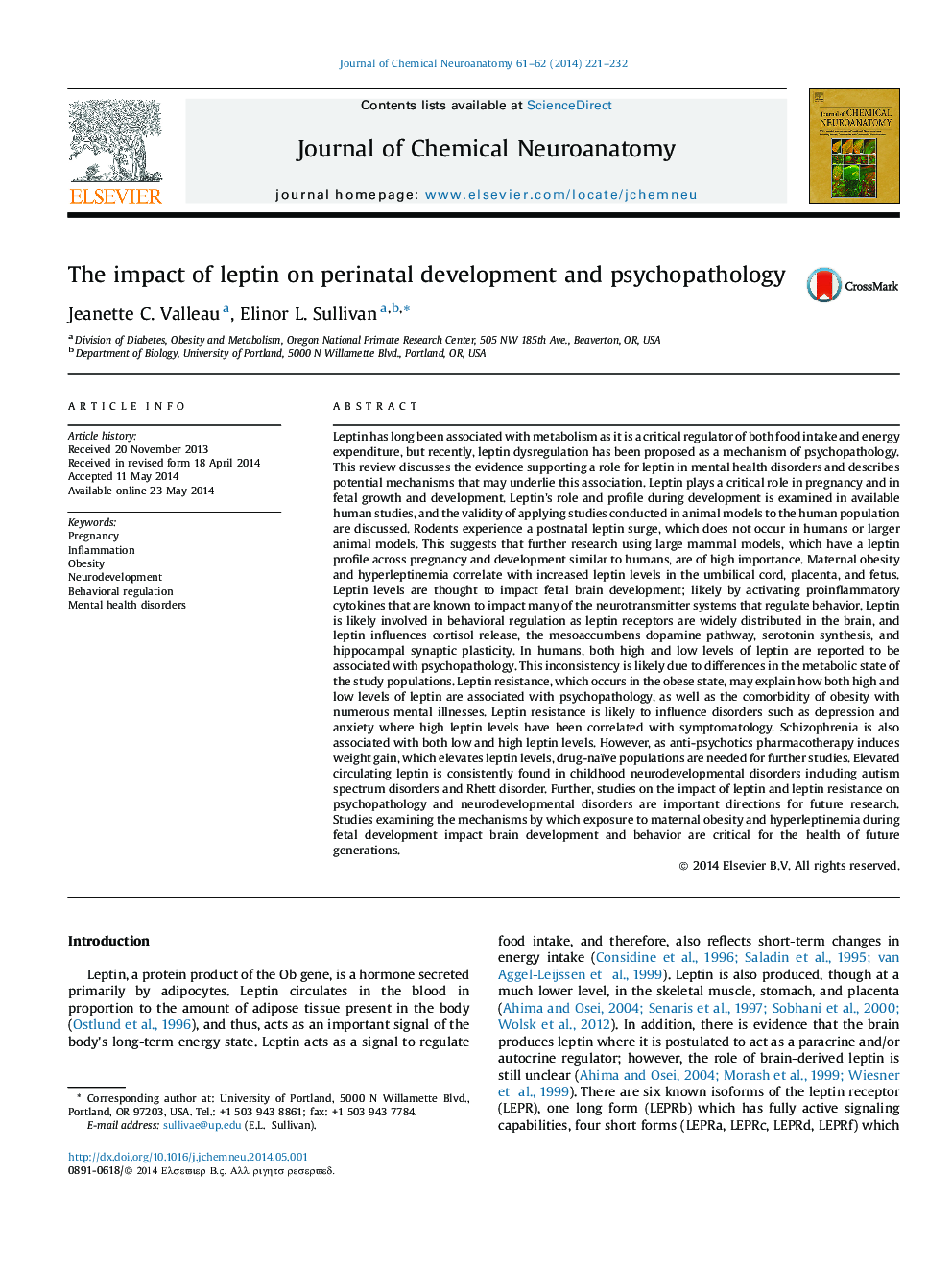| کد مقاله | کد نشریه | سال انتشار | مقاله انگلیسی | نسخه تمام متن |
|---|---|---|---|---|
| 1988794 | 1540456 | 2014 | 12 صفحه PDF | دانلود رایگان |
• Leptin dysregulation is associated with many common mental health disorders.
• Offspring brain development is impacted by maternal obesity and hyperleptinemia.
• Leptin initiates release of inflammatory cytokines.
• Leptin resistance may explain the comorbidity of obesity and psychopathologies.
Leptin has long been associated with metabolism as it is a critical regulator of both food intake and energy expenditure, but recently, leptin dysregulation has been proposed as a mechanism of psychopathology. This review discusses the evidence supporting a role for leptin in mental health disorders and describes potential mechanisms that may underlie this association. Leptin plays a critical role in pregnancy and in fetal growth and development. Leptin's role and profile during development is examined in available human studies, and the validity of applying studies conducted in animal models to the human population are discussed. Rodents experience a postnatal leptin surge, which does not occur in humans or larger animal models. This suggests that further research using large mammal models, which have a leptin profile across pregnancy and development similar to humans, are of high importance. Maternal obesity and hyperleptinemia correlate with increased leptin levels in the umbilical cord, placenta, and fetus. Leptin levels are thought to impact fetal brain development; likely by activating proinflammatory cytokines that are known to impact many of the neurotransmitter systems that regulate behavior. Leptin is likely involved in behavioral regulation as leptin receptors are widely distributed in the brain, and leptin influences cortisol release, the mesoaccumbens dopamine pathway, serotonin synthesis, and hippocampal synaptic plasticity. In humans, both high and low levels of leptin are reported to be associated with psychopathology. This inconsistency is likely due to differences in the metabolic state of the study populations. Leptin resistance, which occurs in the obese state, may explain how both high and low levels of leptin are associated with psychopathology, as well as the comorbidity of obesity with numerous mental illnesses. Leptin resistance is likely to influence disorders such as depression and anxiety where high leptin levels have been correlated with symptomatology. Schizophrenia is also associated with both low and high leptin levels. However, as anti-psychotics pharmacotherapy induces weight gain, which elevates leptin levels, drug-naïve populations are needed for further studies. Elevated circulating leptin is consistently found in childhood neurodevelopmental disorders including autism spectrum disorders and Rhett disorder. Further, studies on the impact of leptin and leptin resistance on psychopathology and neurodevelopmental disorders are important directions for future research. Studies examining the mechanisms by which exposure to maternal obesity and hyperleptinemia during fetal development impact brain development and behavior are critical for the health of future generations.
Journal: Journal of Chemical Neuroanatomy - Volumes 61–62, November 2014, Pages 221–232
